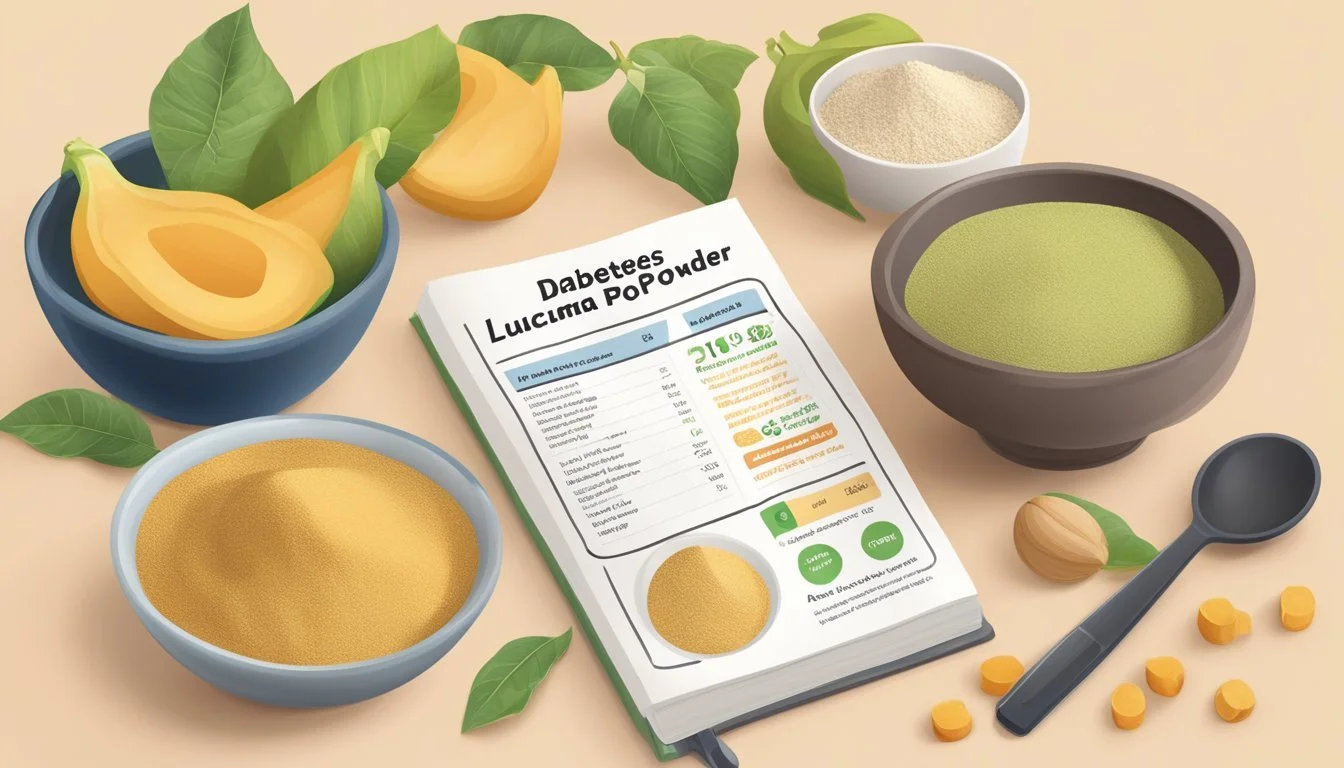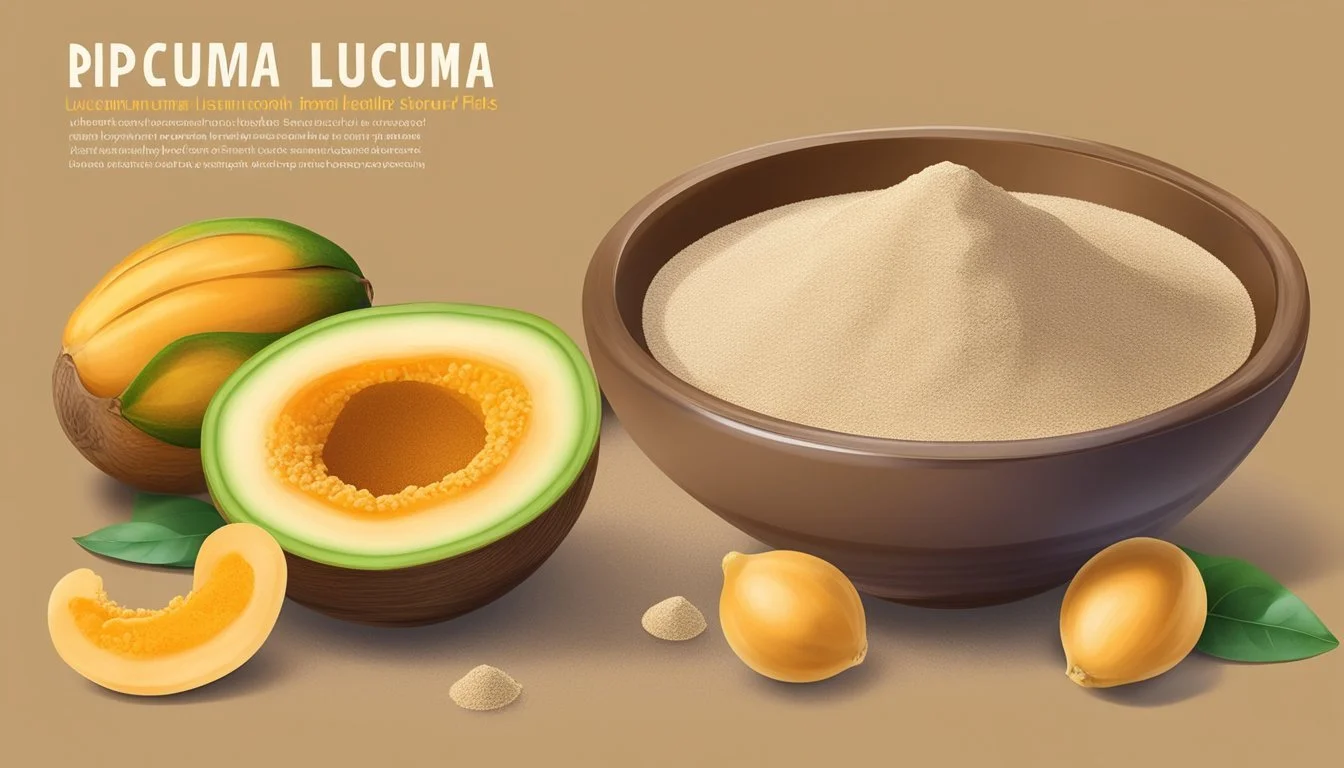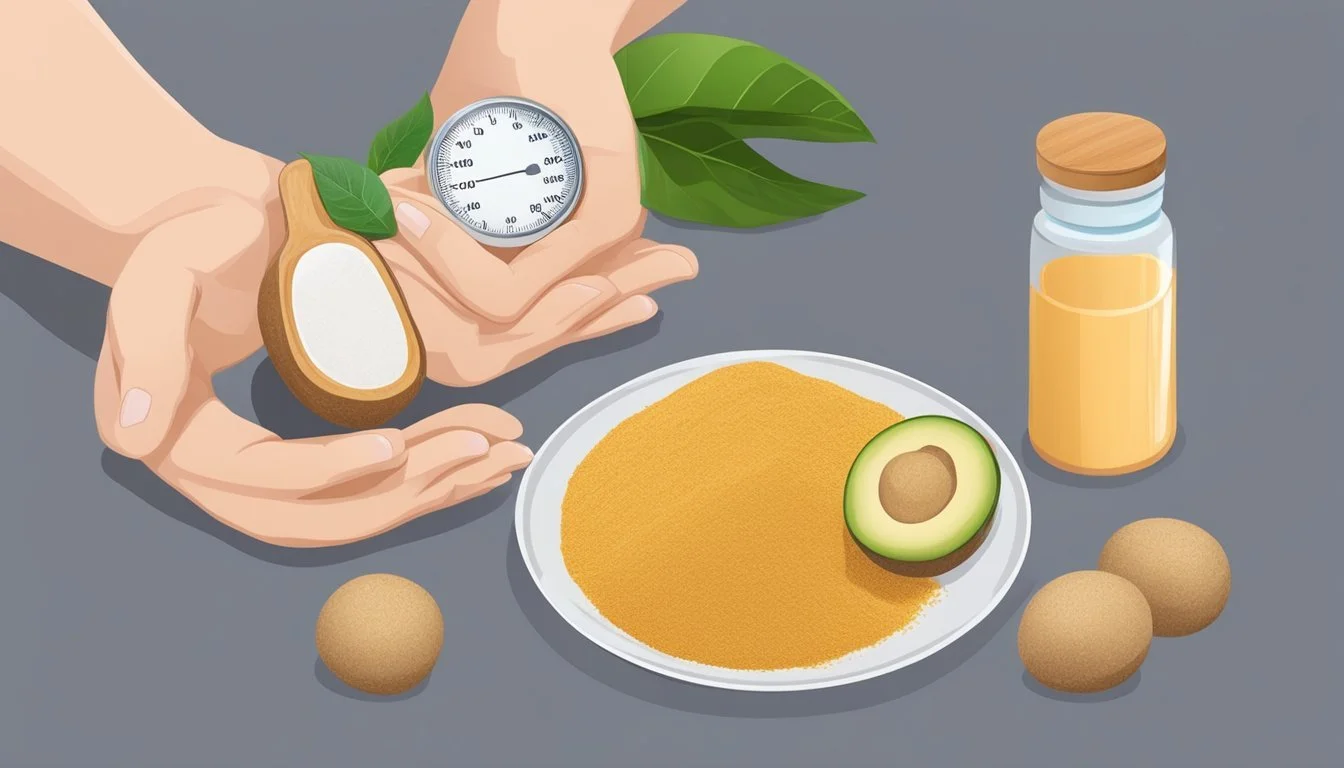Can Diabetics Eat Lucuma Powder?
Benefits and Considerations
Diabetes management often involves meticulous control of diet and blood sugar levels. Lucuma powder, derived from the lucuma fruit native to South America, has emerged as a potential option for those seeking natural alternatives to conventional sweeteners. Lucuma powder can benefit diabetics due to its low glycemic index, which helps in maintaining stable blood sugar levels.
For diabetics, regulating blood sugar is essential. Lucuma powder’s low glycemic index means it digests slowly, preventing spikes in blood glucose. This makes it a favorable option for those looking to sweeten their foods without causing rapid changes in blood sugar. Its nutritional profile, rich in fiber and essential vitamins, adds to its appeal as a healthy supplement.
Furthermore, lucuma powder is packed with antioxidants and nutrients such as vitamin C, calcium, and iron. Its ability to provide sweetness along with nutritional benefits makes it a smart choice for individuals with diabetes who need to carefully manage their diet without compromising on taste.
What Is Lucuma?
Lucuma, also known as the "Gold of the Incas," is a fruit native to the Andean valleys of Peru. This South American fruit, from the Pouteria Lucuma tree, offers an array of nutrients beneficial for health.
Nutritional Profile of Lucuma
Lucuma fruit is packed with vital nutrients, vitamins, and minerals. It is notably rich in fiber, which aids digestion and helps maintain stable blood sugar levels. One tablespoon of lucuma powder contains about 2 grams of fiber. Additionally, lucuma includes significant amounts of potassium, vitamin C, calcium, and iron.
The fruit also possesses antioxidants, which combat oxidative stress in the body. Niacin (Vitamin B3) is present as well, contributing to improved metabolism and energy production. The carbohydrate content in lucuma provides a slow and steady release of energy, making it a favorable option for those mindful of blood sugar stability.
Historical Significance
Lucuma has deep roots in the cultural and historical landscape of Peru and other parts of South America. Often referred to as the "Gold of the Incas," lucuma was highly valued by ancient civilizations for its sweet taste and nutritional benefits.
The Pouteria Lucuma tree thrives in the fertile soils of the Andes, making the fruit a staple in the diet of indigenous peoples. It has been cultivated for centuries, not just for its flavor, but also for its medicinal properties. Today, lucuma remains a cherished fruit, celebrated for its rich history and continued health benefits.
Lucuma's Impact on Blood Sugar Control
Lucuma powder, with its low glycemic index, offers significant benefits for blood sugar management, particularly for diabetics. It is an effective natural sweetener that helps maintain stable blood sugar levels and may improve insulin sensitivity.
Lucuma for Diabetics
Lucuma powder is beneficial for individuals with Type 2 Diabetes due to its low glycemic index (GI). Foods with a low GI cause slower rises in blood glucose levels, which helps manage blood sugar spikes.
Including lucuma powder in the diet can assist in stabilizing blood sugar levels. The soluble fiber content in lucuma also supports insulin sensitivity, making it easier for the body to regulate blood sugar. This makes lucuma a valuable alternative sweetener for those looking to reduce their intake of traditional sugar.
Furthermore, its antioxidant properties and anti-inflammatory benefits contribute to heart health, which is often a concern for diabetics. These attributes combine to help mitigate high blood pressure and reduce the risk of heart disease.
Studying the Glycemic Index of Lucuma
Lucuma powder’s glycemic index is significantly lower than common sweeteners. Research highlights that its complex carbohydrates, including soluble fiber, digest more slowly and thus, help in maintaining stable blood sugar levels.
In a comparative analysis, lucuma powder outperforms standard sugar by causing fewer blood sugar spikes. For those with Type II Diabetes, this slower digestion and absorption rate can be critical in preventing rapid increases in blood glucose levels.
Moreover, ongoing studies suggest that regular consumption of lucuma may improve insulin sensitivity, which is crucial for blood sugar control. As a natural sweetener, it provides a way to enjoy sweet foods without the adverse effects on blood glucose levels, making it an effective part of a diabetic-friendly diet.
By focusing on both its glycemic properties and additional health benefits, lucuma stands out as a well-rounded choice for managing diabetes-related blood sugar control.
Potential Health Benefits of Lucuma
Lucuma powder may provide various health benefits, including supporting cardiovascular health, aiding digestion, and offering antioxidant effects. Each benefit helps manage different aspects of health, making lucuma a potential supplement for those seeking natural health aids.
Lucuma and Cardiovascular Health
Lucuma's potential heart-health benefits include its ability to regulate blood sugar and blood pressure levels. The soluble fiber in lucuma can help maintain stable blood sugar, which is important for those managing diabetes. Additionally, lucuma contains nutrients that might inhibit angiotensin-converting enzyme (ACE), which can aid in reducing blood pressure.
The anti-inflammatory properties of lucuma also contribute to cardiovascular health. Inflammation is linked to various heart conditions, and reducing it can support overall heart health.
Digestive and Immune Support
Lucuma powder is a good source of dietary fiber. Soluble fiber in particular aids in maintaining gut health and preventing constipation. Regular fiber intake can improve digestive health by promoting healthy bowel movements and maintaining a balanced gut microbiome.
Lucuma's rich nutrient profile supports the immune system as well. Phytonutrients and bioactive compounds present in lucuma enhance the body's virus-fighting capabilities, offering further protection against common illnesses like colds and flu.
Antioxidant Effects
Lucuma contains powerful antioxidants that can neutralize free radicals, which are harmful molecules that cause oxidative stress. This stress can lead to premature aging and the development of chronic diseases.
Antioxidants in lucuma help protect cells from damage and may slow down the aging process. Incorporating lucuma powder into the diet can bolster the body's defense mechanisms, preserving skin health and overall cellular function.
By addressing cardiovascular health, digestive health, and providing antioxidant benefits, lucuma powder presents itself as a multifaceted supplement option for enhancing overall well-being.
Using Lucuma Powder in a Diabetic Diet
Lucuma powder offers a natural, low-glycemic sweetener option that can be integrated into various meals. Its fiber content helps stabilize blood sugar levels, making it a favorable choice for diabetics.
Culinary Applications
Lucuma powder can replace sugar in many recipes due to its subtle sweetness and nutritional benefits. It’s ideal for baked goods, as it works well in muffins, bread, and cookies without causing blood sugar spikes. This makes it a suitable substitute for diabetics seeking healthier alternatives.
It can also be added to smoothies, offering a sweet taste without compromising blood glucose control. Adding lucuma to coffee or nut butter spreads introduces a sweet flavor while keeping sugar content low, beneficial for those managing diabetes.
Healthy Recipe Ideas
Creating diabetes-friendly recipes with lucuma powder is simple. Green smoothies can be enhanced with lucuma for sweetness and added fiber. A recipe could include spinach, almond milk, chia seeds, and a tablespoon of lucuma powder for a nutritious meal that doesn’t spike blood sugar levels.
For desserts, consider lucuma-enhanced ice creams or yogurts. Mixing lucuma powder with Greek yogurt and a handful of berries can make a delicious, low-sugar treat. In baking, substitute lucuma for sugar in recipes like banana bread or oatmeal cookies, providing a wholesome, blood sugar-friendly option.
Lucuma powder is versatile, making it easy for diabetics to enjoy sweet flavors without the risk of glucose imbalances.
Consumption and Safety Considerations
Lucuma powder offers potential health benefits, but diabetics must consider specific intake recommendations and possible interactions with medications.
Recommended Intake for Diabetics
For individuals with diabetes, moderate consumption of lucuma powder is advised. Generally, starting with one tablespoon (approximately 7.5 grams) per day is suggested.
This amount provides a modest 2 grams of dietary fiber which can help with blood sugar control by slowing glucose absorption. Lucuma's low glycemic index also aids in maintaining stable blood sugar levels, making it a suitable alternative to high-sugar sweeteners.
Health food stores often carry lucuma powder, and it's important to select a high-quality product to ensure purity and avoid additives. Consulting a healthcare provider before making significant dietary changes is wise, especially for those managing Type 2 Diabetes.
Potential Interactions with Medications
Lucuma powder may interact with certain diabetes medications. Specifically, it can impact the effectiveness of alpha-glucosidase inhibitors, a class of drugs used to manage blood sugar levels.
These medications slow carbohydrate digestion, and the fiber in lucuma may further enhance this effect, potentially lowering blood sugar more than intended.
Additionally, lucuma's potassium content warrants caution for those on potassium-sparing diuretics or other medicines affecting heart function and blood pressure. Monitoring blood sugar levels closely and discussing with a healthcare provider can help ensure safe consumption alongside ongoing medication regimens.
Conclusion
Lucuma powder presents itself as a promising natural sweetener for diabetics.
Its low glycemic index suggests it does not spike blood sugar levels rapidly. This makes it a suitable option for those needing to regulate glucose levels.
The fruit's fiber content may aid in maintaining stable blood sugar levels, which is beneficial for diabetics.
Lucuma is also rich in vitamins, minerals, and antioxidants, contributing to its designation as a "superfood." These nutrients can support overall health, including immune function and reducing inflammation.
Incorporating lucuma powder into the diet can provide a sweet flavor without the adverse health effects associated with traditional sweeteners. It can be added to smoothies, desserts, and other recipes as a nutritious alternative to refined sugar.
While lucuma shows potential, it is always advisable for diabetics to consult with healthcare professionals before making significant dietary changes.








